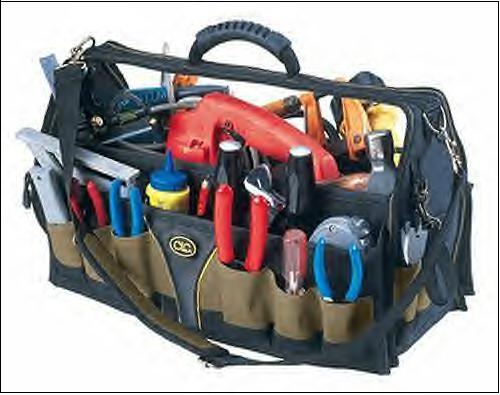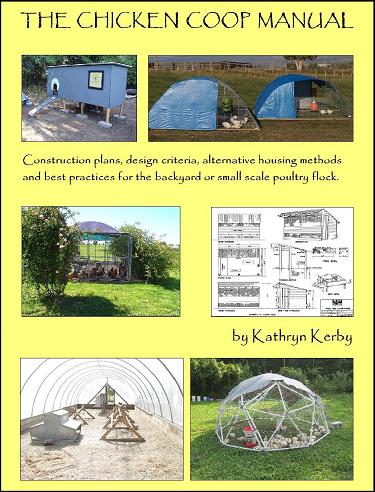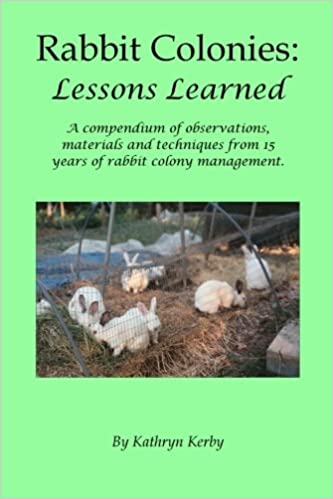Necessary Tools
January 6, 2011

The fallout from yesterday's Dances With Cows has been rather interesting. Not in a good way, but perhaps we may yet turn things around. But I'm getting ahead of myself.
After we'd gotten Gracie the cow down from her torment on top of the rail, we were standing around trying to recover from that effort. After such an adrenalin rush, I suppose it's human nature to resort to chit-chat to break the tension. I was mumbling something about "thank you again for coming out" and the vet said something that is still ringing in my ears. "The receptionist almost told you to call someone else, but I was standing right there and told her to tell you I was on my way. But you should probably know, we don't do cows anymore."
The weight of that statement is huge. The more I think about it, the bigger it gets. Any given farm is in some ways a factory - materials and skills and energy going in, and products coming out. That analogy would anger a lot of very good farmers but stay with me here. The point is that there must be materials and skills and information coming into the farm from the outside, which can be combined with the resources already on the farm, to create whatever the farm is set up to create. Most conversations about farm management and farm logistics and even farm sustainability focus primarily on either economic or environmental materials management. But that leaves off a vital segment - outside expertise. No one person can be an expert at everything. And sometimes that expertise can make the difference between a thriving farm operation, versus a shuttered farmhouse, empty barn and vacant paddocks.
So learning yesterday that my nearby vet hospital no longer covers cows was a blow. I am very comfortable doing a lot of different medical things with my animals - giving SubQ or IM injections, treating minor injuries, treating mastitis and pneumonia and cocci and so on. But there are times and circumstances where my animals' needs go beyond my skills. At which point I either call in the experts or lose the animal. While we do sometimes choose to put an animal down as humanely as possible, it is still nice to have the choice for how to proceed. Losing that choice, and that expertise, reduces my ability to respond well to uncommon, but definitely possible, events. When you're reduced to one option, that paints you into a corner real fast. But why was this happening?
I knew our local vet hospital had slowly but surely been retreating from various livestock - first they stopped seeing pigs, then small ruminants like goats and sheep. And now apparently they no longer do cows. After talking to a variety of people about this, including our very good dog/cat vet, the verdict is pretty uniform - vets can make more money, with less risk to personal safety, by going either with dogs and cats, or horses. I can certainly understand the economics. Large animal treatment is a hassle. If the animal is transported to the vet, the vet hospital must have adequate reception, exam, treatment and surgery areas for these larger creatures. Merely transporting them from one place to another can be a pain because you either need a van, a truck or a trailer. So instead of bringing the animal to the vet, sometimes the vet comes to the animal. That saves the producer some hassle, but then the vet needs a truck equipped with all the supplies, equipment and drugs which may be needed. That vet also easily spends as much time on the road any given day as he or she does seeing the client's animals. That gets expensive really, really fast. Add to that the risks involved in working with animals that usually weigh a lot more than you do, and can do serious damage if they don't like what you're doing. The risk to life and limb is real. We the owners are possibly less at risk because our animals know us and hopefully trust us. But have some vet go into a pen and start poking and prodding, that puts the vet in range of being kicked, bitten, gored or trampled. Even a minor bite to the hand can end a vet's career. So it's really no mystery that vet hospitals have been taking a long hard look at whether it pays to see livestock. I guess more and more of them have concluded the costs and the risks outweigh the benefits.
So the livestock owner is left with some hard choices. We keep our animals knowing that when they get sick or injured, we're on our own. Or we pick up the phone and start sending the emails asking for assistance from more experienced livestock owners, who are not vets but hopefully they have at least seen what we're seeing in this particular illness or injury, and know what to do next. That latter has been happening more and more frequently over the passage of time. I am on roughly two dozen email lists for various livestock species, and most of the emails back and forth involve some kind of owner-administered health care after injury or illness. It might be as simple as an abrasion or a fever. But I've seen emails asking for help with animals suffering from gangrene, tetanus, poisoning, and other life-threatening conditions. Their emails usually start of with "we don't have any vets here anymore......"
A third option is the one that we're going to pursue. Namely, to increase access to information, to techniques, and methods before the owner needs them, so that owners can stock up on the medications, the supplies, and the diagnostic tools they'll need for those future events. Prevention is also a huge part of this equation - safe fences reduce injury, sound nutrition reduces susceptibility to illness, and knowledgeable observation and diagnostics can nip a problem in the bud before it gets more serious. I have only just started to talk about how other livestock owners and I might accomplish this. So far we've talked about things like newsletters, workshops, websites chock full of information, and good old fashioned farmers-helping-farmers. Whatever it takes to gain the information, the equipment and the supplies we need. Whatever it takes to put tools in our livestock management toolbox.
It's not a perfect answer. Some would object because we are bumping up hard against local, state and federal law against practicing medicine without a license. Well, to that latter concern I would invite a state official to take my cellphone calls when the phone rings in the middle of the night because someone's lambs are down with enterotoxemia, or someone's cow is calving and the calf is stuck. That official is welcome to take the call and walk that owner through how to proceed. But less flippantly, and more importantly, producers need these tools to do this job we call farming. Either we get that support from outside expertise, or we bootstrap ourselves up into being competent to provide care for our own animals. I don't like that last answer, but that may be the best answer we can come up with.
As I started to explore this topic, I asked other livestock owners in other areas of the country what solutions they had come up with. I got a lot of replies, but precious few solutions. Most of them merely said they were stuck with the same issue, and did not have a satisfactory answer. A few said they had teamed up with retiring vets to try to learn as much as possible from the Old Guard before that knowledge was lost. It's disconcerting that even as our nation is poised on the verge of an agricultural rennaissance, we're being hamstrung by a lack of information. I don't know yet what the solution is, but I can tell you I'll be working on a solution in conjunction with a lot of other very concerned livestock owners. We'll keep you posted.
Our Successful Farming and Ranching Books

We released our very first self-published book. The Chicken Coop Manual in 2014. It is a full color guide to conventional and alternative poultry housing options, including 8 conventional stud construction plans, 12 alternative housing methods, and almost 20 different design features. This book is available on Amazon.com and as a PDF download. Please visit The Chicken Coop Manual page for more information.

Rabbit Colonies: Lessons Learned
We started with rabbits in 2002, and we've been experimenting with colony management ever since. Fast forward to 2017, when I decided to write another book, this time about colony management. The book is chock-full of practical information, and is available from both Amazon and as a PDF download. Please visit the Rabbit Colonies page for more information.
The Pastured Pig Handbook
We are currently working on our next self-published book: The Pastured Pig Handbook. This particular book addresses a profitable, popular and successful hog management approach which sadly is not yet well documented. Our handbook, will cover all the various issues involved with pastured hog management, including case studies of numerous current pastured pig operations. If you have any questions about this book, please Contact Us.

Weblog Archives
We published a farm blog between January 2011 and April 2012. We reluctantly ceased writing them due to time constraints, and we hope to begin writing them again someday. In the meantime, we offer a Weblog Archive so that readers can access past blog articles at any time.
If and when we return to writing blogs, we'll post that news here. Until then, happy reading!




